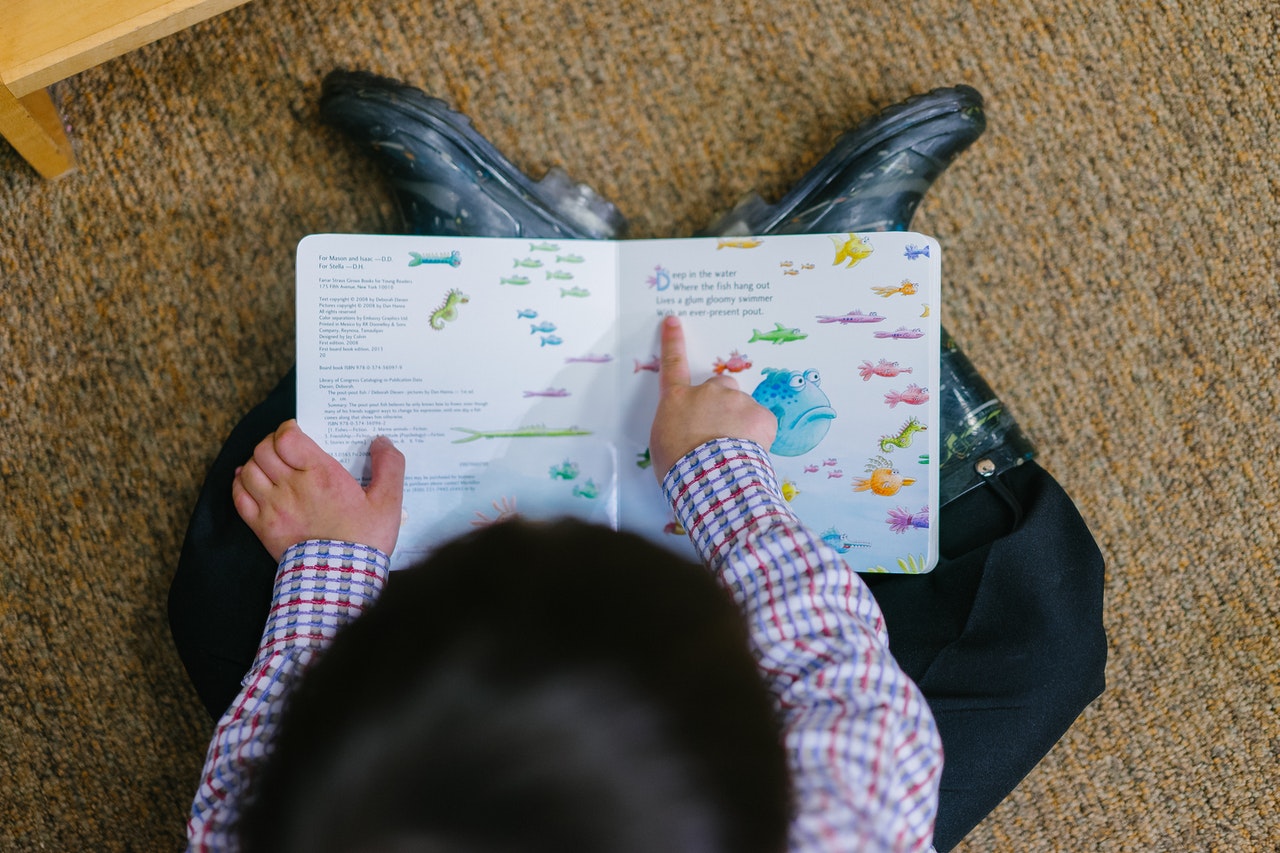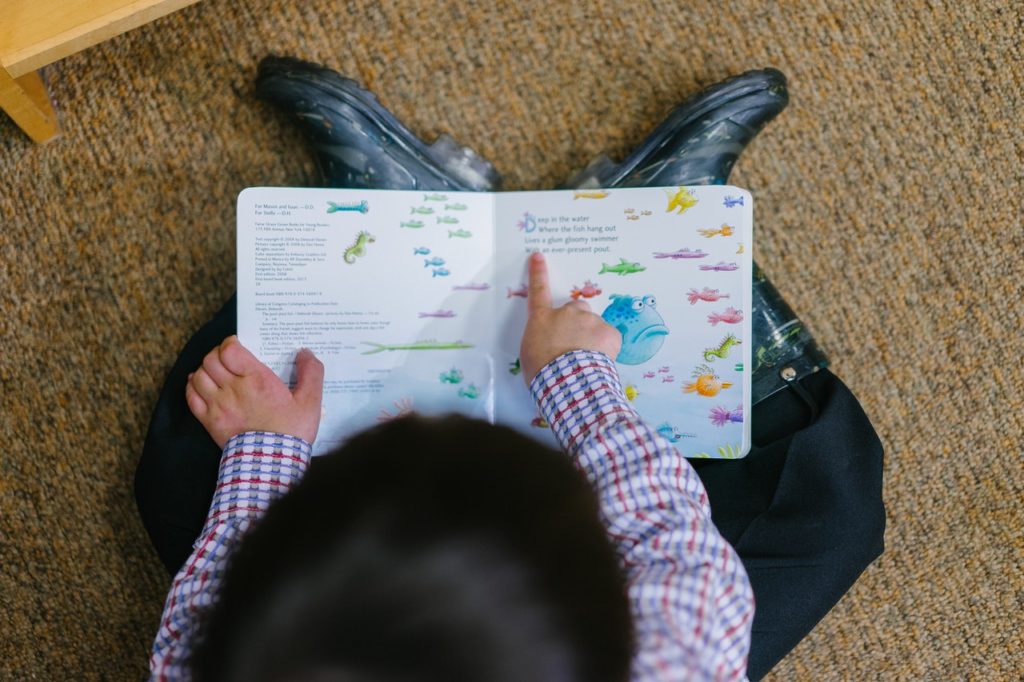What does it mean to be financially literate? Is it more important to be able to balance a checkbook or to understand the power of compound interest? Does a financially literate person pay down student debt or consumer debt first? And does a truly financially literate person even take on debt in the first place?
A growing number of fintechs – many of them Finovate alums you’ll meet below – have devised innovative ways to help young people in particular, become better earners, savers, spenders, and investors. The majority of these innovations leverage rewards and gamification to make the educational medicine go down easier. These strategies use everything from gift cards to actual cash to encourage users to successfully complete lessons on personal finance or watch videos on common sense money management.
As companies, these fintechs partner with financial institutions – community banks and credit unions in particular – to help make their financial literacy offerings available to their customers and members. In some instances, companies have successfully partnered with educational institutions which have used their solutions as part of their financial education curricula.
April is financial literacy month. And as the coronavirus-induced economic slowdown – and potential recession – has everyone reconsidering the stability of their financial circumstances, now seems like an especially good time to be reminded of the importance of a solid – contemporary – financial education.
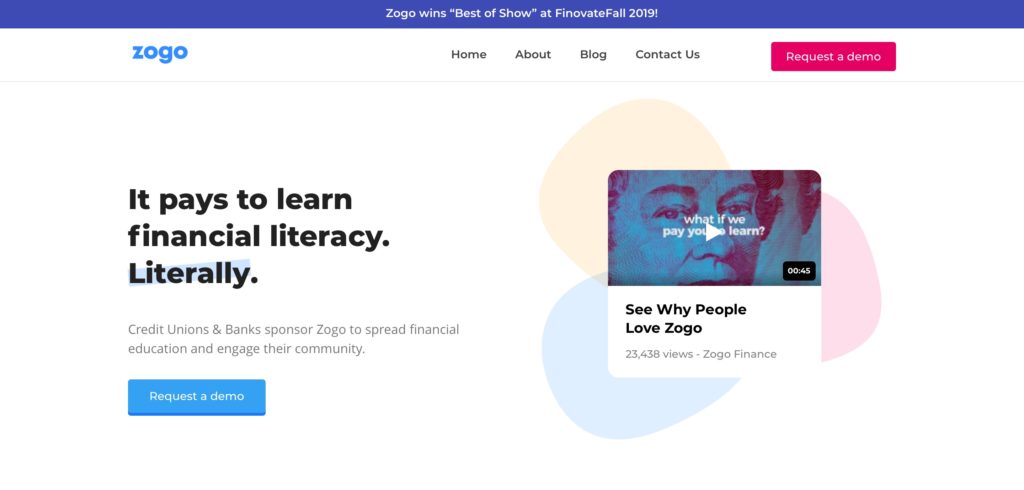
As recently as last fall, Finovate audiences were ranking financial literacy among the top of fintech’s most important themes. Zogo Finance, a Durham, North Carolina-based fintech that made its Finovate debut at FinovateFall, took home a Best of Show award for its Teen Financial Literacy app. Zogo’s solution pays users cash rewards – in the form of gift cards from leading brands – for successfully completing lessons on topics such as budgeting, credit, and investing.
The platform’s more than 300 educational modules were designed by educators at Duke University and ensure that users meet national standards for financial literacy. Zogo has teamed up with more than 11 community banks and credit unions in 12 states since its inception in 2018. The company began this year announcing a new partnership with fellow Finovate alum Bankjoy.
EVERFI, a Washington, D.C.-based company founded ten years before Zogo Finance, is another recent Finovate alum that has made a commitment to promoting financial literacy. The company powers community-oriented financial education for more than 850 financial institutions and 3,500+ partners in all 50 states of the U.S., as well as in Canada and Puerto Rico.
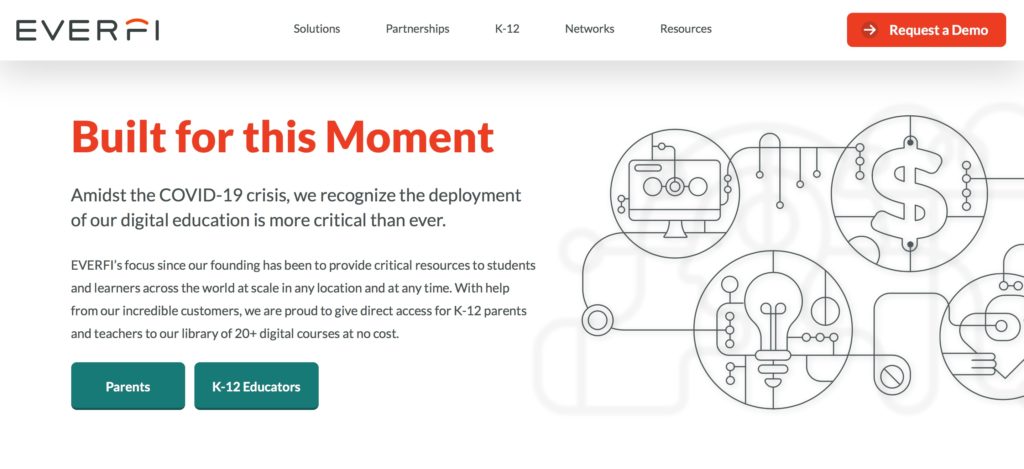
EVERFI, which offers workplace training and other educational programs as well as financial literacy, demonstrated its Achieve solution at FinovateSpring last year. The financial wellness technology enables financial institutions to offer personalized financial education to customers, employees, as well as to small business and corporate banking clients. From savings for college to navigating the homebuying process, EVERFI’s Achieve platform offers financial education that is as relevant as it is comprehensive.
Last fall, EVERFI announced a partnership with Zelle parent Early Warning Services to provide free financial education coursework to more than 1,000 high schools and 50,000+ students. The company began this year working with the MassMutual Foundation and the Washington Wizards NBA team to host the FutureSmart Challenge – an interactive financial literacy event for middle school students. Named to Fast Company’s 2020 World’s Most Innovative Companies roster, EVERFI unveiled a new financial education website earlier this month dedicated specifically to the financial challenges of the coronavirus pandemic.
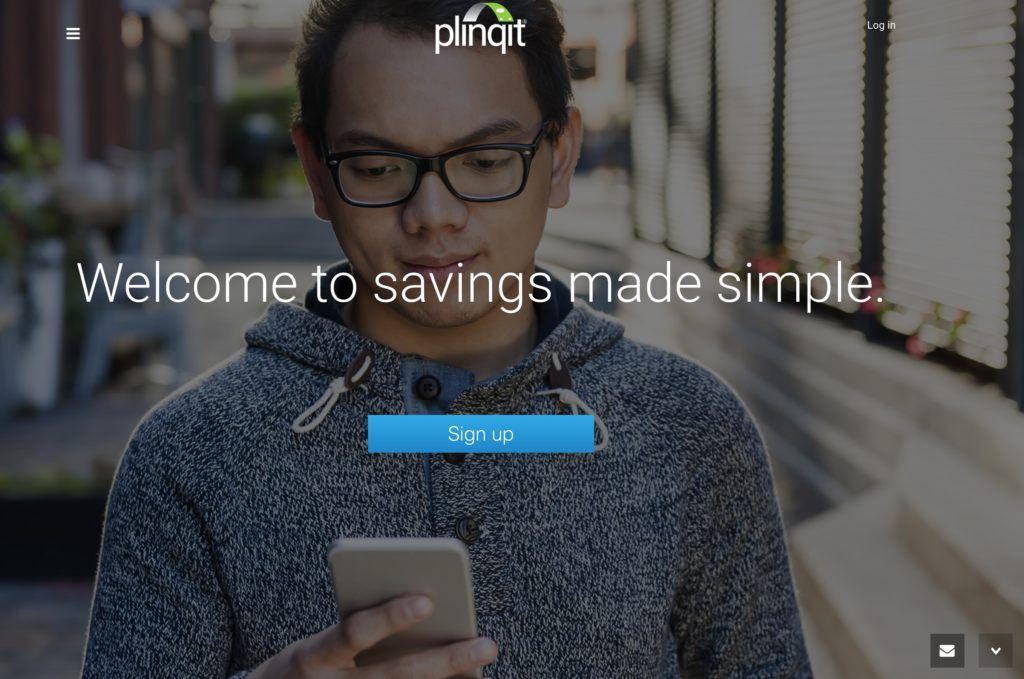
Plinqit is another platform that made its Finovate debut last year and combines being an actual savings app with financial literacy features. Developed by Ann Arbor, Michigan-based HT Mobile Apps (HTMA), Plinqit leverages its Build Skills feature to pay users for engaging with its educational content. Once users sync their Plinqit account with their bank or credit union checking account and set up as many as five savings goals, Plinqit will help the user set aside a pre-determined amount of money on a customized schedule. Users can earn Plinqit cashback rewards (of approximately 1%) by reaching savings goals, referring friends and family to Plinqit, or by viewing articles and videos on personal finance and financial wellness topics.
A partnership with Arkansas-based First Community Bank ($1.5 billion in assets) put Plinqit back in the fintech headlines at the beginning of the year. The 26-branch bank teamed up with Plinqit parent company HT Mobile Apps in order to provide HTMA’s savings and financial literacy solutions to its customers. More recently, HTMA brought its financial education solutions to ChoiceOne Bank and Marquette Savings Bank.
Provo, Utah-based Banzai is another fintech oriented around financial literacy that made a major splash in its FinovateFall debut in 2018. The company picked up a Best of Show award for a demonstration of its turn-key, Community Reinvestment Act-eligible solution to enable organizations to add personal finance-based educational content – including interactive online simulations – to their websites.
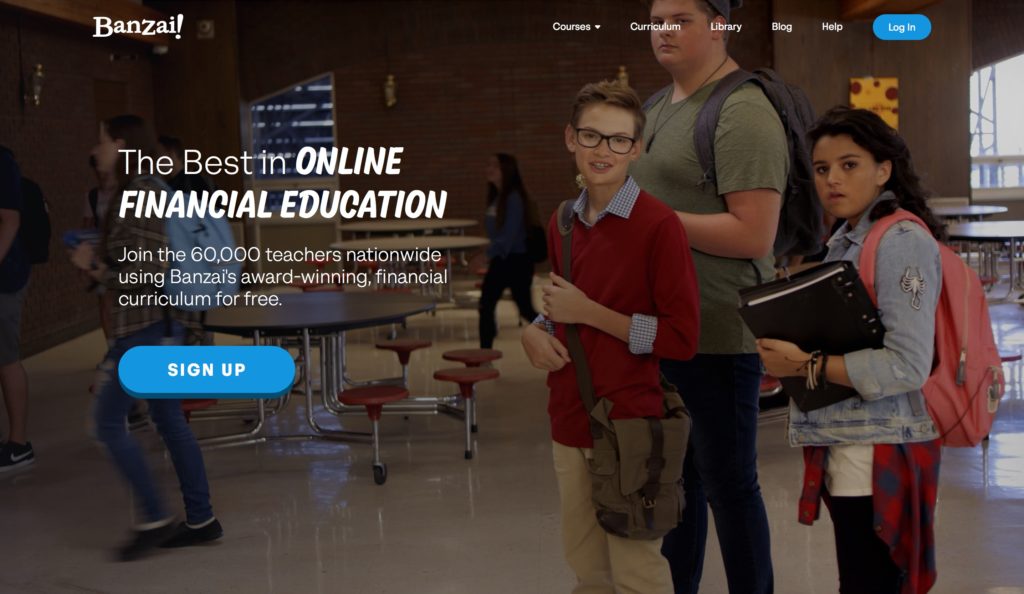
Partnerships with community banks and credit unions enable Banzai to offer its financial literacy solution free of charge. The company provides three tiered courses for youth – Junior, Teen, and Plus – to ensure that the information provided and real-world scenarios are age-relevant and appropriate. Banzai’s curriculum has been used by 60,000 teachers across the U.S. and can be accessed from desktops, tablets, and mobile devices, as well.
In launching a new financial education resource for adults last fall, Banzai Coach, the company made a significant addition to its financial literacy offerings. Banzai Coach provides adult users with financial advice and instruction on how to get out of debt, how to manage basic business finances, and how to maximize their tax-advantaged investments such as retirement accounts, health savings accounts (HSA), and flexible spending accounts (FSA).
“Kids in schools love knowing that their decisions in the game actually have an impact,” Banzai’s Bryce Peterson wrote on the company’s blog announcing the availability of Banzai Coach. “As adults, we have quite the opposite concern: just about every decision we make has some kind of impact we didn’t predict or control.”
